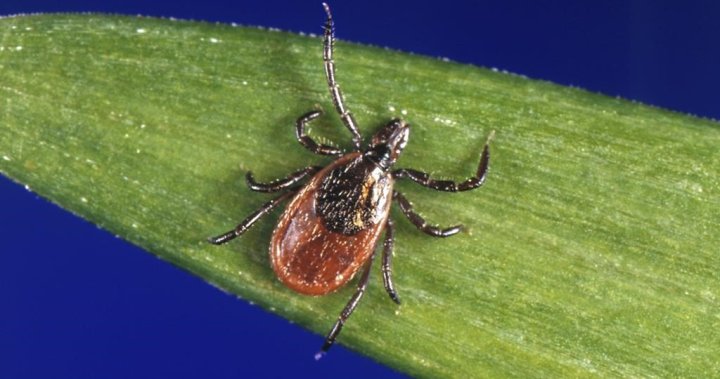New research from Simon Fraser University reveals ants could be a solution to prevent tick bites.
In a media release Monday, the university said researchers found that ticks would avoid ants and the area they were in. Even once the ants would leave the area, ticks would still not go to where the ants previously were.
“They could see that there were ants and basically go, ‘I’m not going to go there because there may be ants there or there may be ants there again soon,” said Claire Gooding, the lead author of the study.
The research was published recently in the journal Royal Society Open Science.

Gooding said the team researched ants as a potential solution because the insects work in large groups and use chemicals to communicate.
“They are social insects and use a huge range of pheromones to communicate with one another,” Gooding said.
The email you need for the day’s
top news stories from Canada and around the world.
After discovering the effectiveness of ant pheromones, the team worked with a synthetic chemist and was able to “recreate a synthetic version” of the pheromones.

This synthetic ant pheromone was also successful in repelling ticks.
“There’s quite a big risk of tick encounters in the summer,” said Gooding. “People often encounter them on the sides of trails.”
The study suggests hikers could consider using ant pheromones as a repellent to scare off ticks.
They have a patent application in process for the repellant chemicals they developed.
There are three species of ticks that commonly bite humans. In some cases, if bites are not treated quickly enough, they can prove fatal.
© 2024 Global News, a division of Corus Entertainment Inc.



